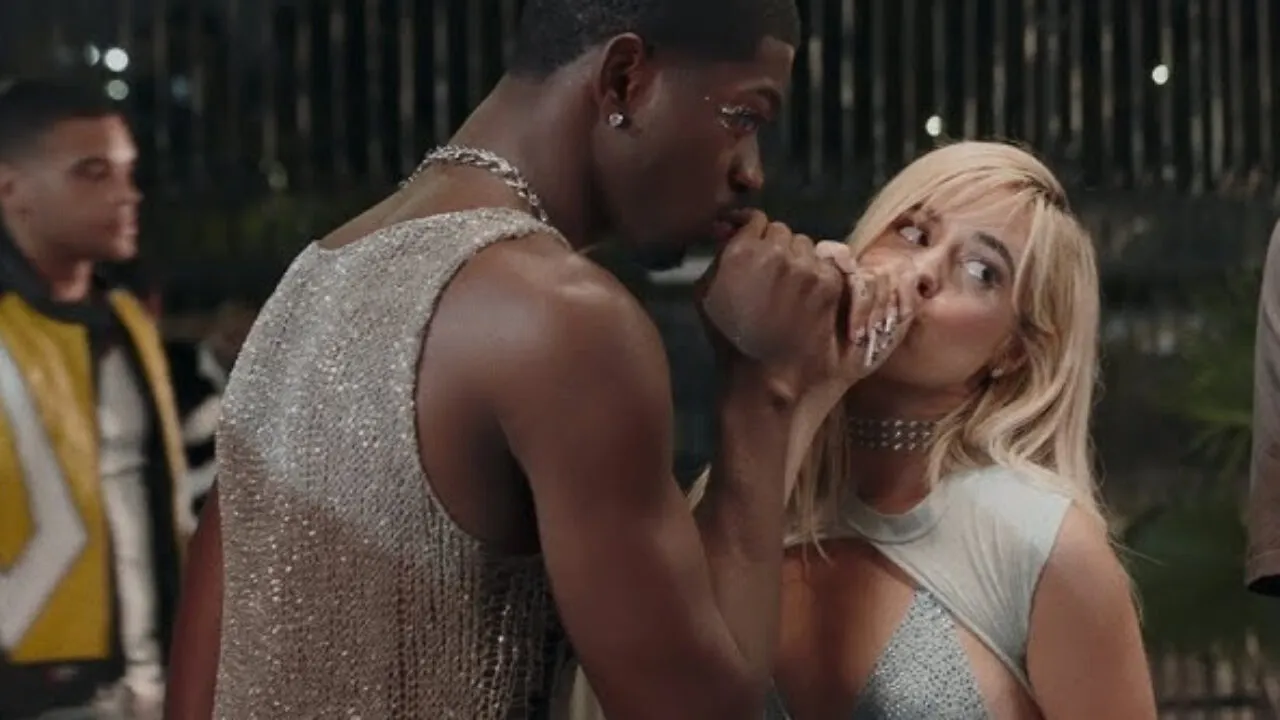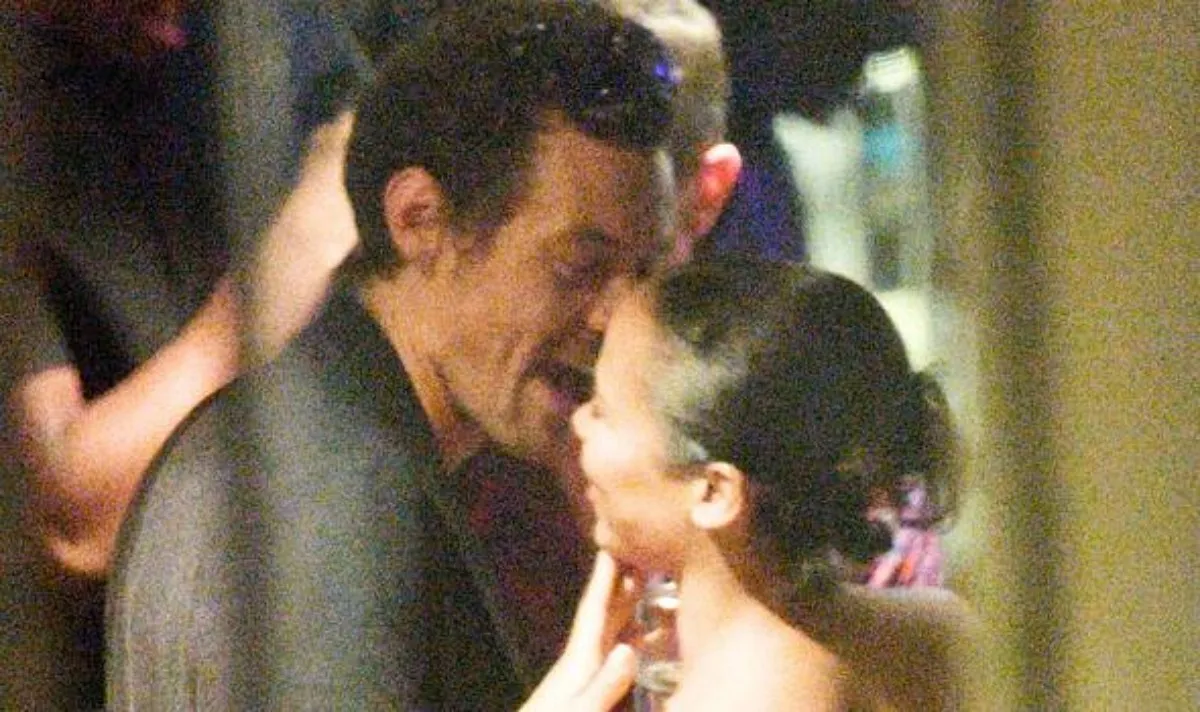

Sabrina Carpenter faced significant backlash over dirty and vulgar “Eiffel Tower” pose during Paris concert
Sabrina Carpenter, the former Disney Channel star turned pop sensation, has been making waves with her bold artistic evolution. However, her latest concert in Paris has sparked widespread controversy after she performed a provocative pose known as the “Eiffel Tower” with two male dancers on stage. The incident has ignited heated debates on artistic expression, audience expectations, and the role of sexuality in the music industry.
The Paris Concert Controversy
During her performance on the Short n’ Sweet tour in Paris, Sabrina Carpenter took the stage for her hit song Juno, which has been a staple of her live shows. In the middle of the song, Carpenter engaged in a dance routine where she and her two male backup dancers formed what is commonly known as the “Eiffel Tower” pose—a suggestive gesture that has explicit connotations.
While the act was seemingly intended as a playful addition to the choreography, it immediately drew backlash from concertgoers and social media users. Many felt that the move was inappropriate, especially considering that Carpenter still has a significant fanbase composed of young audiences.
Public Outrage and Online Backlash
The Paris performance quickly became a trending topic on X (formerly Twitter) and TikTok, with users divided over whether the act was simply a harmless performance or an inappropriate display. Critics were quick to label the move as “vulgar” and “distasteful,” arguing that it was unnecessary and out of place for an artist who rose to fame on Disney Channel.
Many parents took to social media to voice their concerns, with some questioning whether Carpenter’s concerts were suitable for young fans. Some comments included:
- “I took my daughter to see Sabrina, thinking it would be a fun pop concert. I didn’t expect her to be doing that on stage!”
- “Disney stars always try to ‘prove’ they’re grown up, but why does it have to be like this?”
- “Sabrina Carpenter has an amazing voice. She doesn’t need these gimmicks.”
The controversy was further fueled by videos of the performance going viral, with millions of views across different platforms.

Fans Defend Carpenter’s Artistic Choice
Despite the backlash, many of Carpenter’s fans have defended her, arguing that she is an adult artist who should be free to express herself however she chooses. Supporters pointed out that Carpenter, now 25, is far removed from her Disney Channel days and has the right to push artistic boundaries.
- “She’s not a Disney kid anymore. She’s a grown woman performing for an audience that understands her music.”
- “People are acting like this is the first time pop stars have done something provocative on stage.”
- “If you don’t like it, don’t buy a ticket.”
Some also noted that pop music has a long history of controversial performances, with stars like Madonna, Britney Spears, and Miley Cyrus pushing the envelope in similar ways.
The Role of Sexuality in Pop Music
Sabrina Carpenter’s recent performances reflect a broader trend in the music industry, where artists often use provocative imagery to redefine their brand and shed past personas. Many industry experts argue that sexuality has always been a major part of pop music, from Madonna’s Like a Virgin performance in the 1980s to Britney Spears’ infamous kiss with Madonna at the 2003 MTV Video Music Awards.
Carpenter’s case is similar—she is navigating the transition from child star to adult artist, and her recent performances seem to be a way of signaling this shift. However, the challenge lies in balancing artistic freedom with audience expectations.
Audience Expectations vs. Artist Growth
One of the biggest challenges for artists who grow up in the public eye is managing the expectations of their fans. Many of Carpenter’s longtime followers still associate her with her Disney past, which creates a disconnect when she embraces a more mature artistic identity.
This tension is not unique to Carpenter. Other former Disney stars, such as Selena Gomez and Demi Lovato, have also faced criticism when making similar transitions. The question remains: should artists cater to their original fanbase, or should they be allowed to grow and evolve without constraints?
Carpenter’s History of Controversial Performances
This is not the first time Sabrina Carpenter has faced scrutiny for her onstage choices. In fact, the Short n’ Sweet tour has been riddled with provocative moments, with Juno performances becoming increasingly risqué over time.
At the BRIT Awards earlier this year, her sexually suggestive performance received nearly 1,000 complaints to Ofcom, the UK’s media regulator. Similarly, fans have pointed out that her latest shows have incorporated increasingly explicit dance moves, which some believe is a strategic move to shift her public image.
The “Juno” Performance Trend and Social Media Influence
A major factor in Carpenter’s controversial performances is the way they have been influenced by social media. On TikTok, a trend has emerged where fans suggest new poses for her to incorporate into Juno performances, leading to a cycle of ever-escalating dance moves.
This interactive element has made the Short n’ Sweet tour particularly engaging for fans, but it has also contributed to the backlash. As some of the suggested poses become more explicit, Carpenter faces the challenge of balancing fan engagement with maintaining a performance that aligns with her brand.
Should Artists Be Held Accountable for Explicit Content?
The backlash against Carpenter raises larger questions about responsibility in the music industry. Should artists be held accountable for the explicit nature of their performances, or should it be up to the audience to decide what they find acceptable?
Arguments for Artistic Freedom
- Artists should have the freedom to express themselves however they choose.
- Pop music has always included sexual elements, and Carpenter is simply continuing a long tradition.
- Parents should monitor what their children consume rather than expecting artists to cater to all age groups.
Arguments for Responsibility
- Carpenter still has a young fanbase, and she should be mindful of the influence she has.
- Concerts should include clearer age restrictions and content warnings.
- Performers should be aware that not all forms of artistic expression are suitable for all audiences.
Industry Perspectives on Controversial Performances
Music industry experts suggest that controversies like this are often beneficial in the long run. Public debates keep artists in the spotlight, and media coverage—whether positive or negative—helps boost ticket sales and streaming numbers.

Some insiders speculate that Carpenter’s team is intentionally pushing the boundaries to generate buzz. In an industry where attention is currency, controversy can be a powerful marketing tool.
Sabrina Carpenter’s Response
Despite the backlash, Sabrina Carpenter has not directly addressed the controversy. Instead, she has continued performing Juno with similar choreography in subsequent concerts. This suggests that she is doubling down on her artistic choices, rather than retreating in the face of criticism.
However, industry watchers note that she may eventually need to clarify her stance, especially if the backlash continues to grow. In previous cases, artists who faced similar controversies either defended their performances outright or made subtle adjustments to future shows.
Final Thoughts: The Future of Sabrina Carpenter’s Career
Sabrina Carpenter’s Eiffel Tower pose during her Paris concert has once again highlighted the fine line between artistic freedom and audience expectations. While some view it as a harmless expression of creativity, others see it as a sign of unnecessary provocation.
As Carpenter continues to redefine her image, the debate over her performances is unlikely to fade anytime soon. Whether this controversy ultimately helps or hurts her career remains to be seen, but one thing is clear: she has successfully captured the public’s attention, and in the world of pop music, that is often the most important factor of all.


















